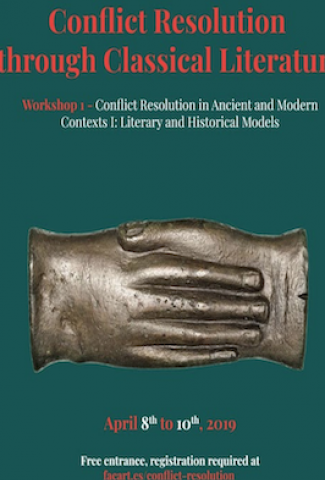
Conflict Resolution in Ancient and Modern Contexts I: Literary and Historical Models
This paper continues and expands previous work on peace and sport in the ancient world. There is no more enduring value in today’s global sporting culture than the pursuit of peace. Yet it has long been observed that tension between the International Olympic Committee (which emphasizes peace, understanding, and solidarity) and the individual National Olympic Committees (which privilege national interests) leaves international sport vulnerable to crisis. In a forthcoming essay, I examine how the rhetoric of the ancient “Olympic truce” (ekecheiría) has re-emerged in recent years as a tool for promoting peace through sport. Historians have been eager to quip about the ekecheiría that no wars stopped during the ancient games and that philosophical articulations of Panhellenic unanimity (homónoia) were only wishful thinking; but these criticisms, which privilege the city-state (pólis) as the sole point of reference in ancient Greek cultural politics, miss the larger point that ancient athletics did often function, albeit on a more granular scale, as means of conflict resolution. In this paper, I describe various ways in which athletics contributed to ancient peace building processes. Within polities, athletics helped to re-integrate veterans socially, to foster feelings of continuity and belonging, to reunite divided constituencies, and to rebuild an appreciation for the rule of law. Among and beyond polities, the supra-civic structures of athletic training and competition provided opportunities to build different types of networks through individual mobility, connectivity, and reciprocity. Borrowing methodologies from the field of Global Studies, my argument uses ancient evidence alongside modern examples to demonstrate these processes at work in antiquity and today.
